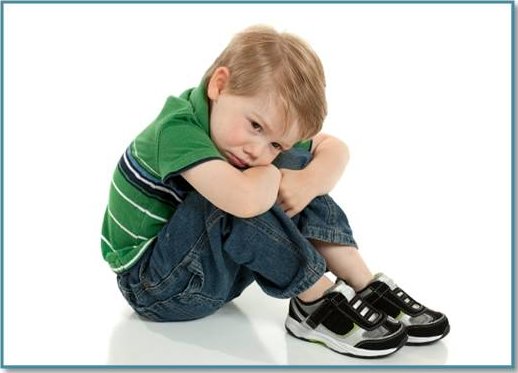Is Daycare Harmful? A Psychologist's Claims And The Expert Response

Table of Contents
Psychologist's Claims Regarding Daycare's Potential Negative Impacts
Some psychologists have voiced concerns about the potential negative effects of daycare on child development, focusing on several key areas. Let's examine these claims and then explore the counterarguments.
Attachment Issues
One common concern is the potential for insecure attachment in children attending daycare. The argument often centers around:
- Lack of Consistent Caregiver: Frequent changes in caregivers can disrupt the bond between child and caretaker.
- Potential for Emotional Deprivation: Some argue that children in daycare may experience less individualized attention and emotional support than those cared for solely by parents.
However, extensive research counters these concerns. Many studies highlight:
- The Resilience of Children: Children are remarkably adaptable and resilient. High-quality daycare environments with consistent, nurturing caregivers can foster secure attachment.
- The Importance of Quality Care: The quality of care significantly outweighs the mere presence or absence of daycare. A responsive, sensitive caregiver in a daycare setting can provide a secure and stimulating environment.
- The Role of Parental Sensitivity: A parent's sensitivity and responsiveness remain crucial, regardless of daycare attendance. A strong parent-child bond can buffer against any potential negative effects.
Cognitive and Social Development Concerns
Some psychologists express concerns about potential delays or negative impacts on cognitive or social development in children attending daycare. These claims sometimes include:
- Increased Aggression: Exposure to a larger group of children might lead to increased aggression or behavioral problems.
- Delayed Language Development: Concerns exist about reduced one-on-one interaction potentially hindering language acquisition.
However, a large body of research suggests that high-quality daycare can actually enhance cognitive and social development:
- Positive Effects on Cognitive Development: High-quality daycare often provides structured learning opportunities, enriching a child's cognitive abilities. This includes improved problem-solving skills and enhanced vocabulary.
- Improved Social Skills: Daycare settings foster social interaction and collaboration, helping children develop essential social skills, such as sharing, negotiation, and conflict resolution.
Increased Illness
Another frequently raised concern is the higher risk of illness in daycare settings. The argument is that:
- Increased Exposure to Germs: Children in daycare are exposed to a larger pool of germs, leading to more frequent illnesses.
While it’s true that daycare attendance might correlate with more frequent minor illnesses, this isn't necessarily a negative:
- Immune System Development: Exposure to a wider range of germs actually helps strengthen a child's immune system, leading to long-term health benefits.
- Daycare Hygiene Protocols: Reputable daycares implement stringent hygiene protocols and sick-child policies to minimize the spread of illness.
Expert Response: Rebutting Claims and Highlighting the Benefits of Quality Daycare
The potential negative impacts of daycare are often significantly mitigated, and even outweighed, by the benefits of high-quality care.
The Importance of High-Quality Childcare
Choosing a high-quality daycare center is paramount. Key factors to consider include:
- Low Teacher-Child Ratio: Smaller class sizes allow for more individualized attention.
- Qualified and Experienced Staff: Educated and caring caregivers are essential.
- A Stimulating Curriculum: A well-structured curriculum promotes learning and development.
- Robust Safety Measures: Daycares should prioritize safety and security.
- Licensing and Accreditation: Ensure the daycare is properly licensed and accredited.
Benefits of Socialization and Early Learning
High-quality daycare offers substantial benefits:
- Development of Social Skills: Interaction with peers helps children learn crucial social skills.
- Exposure to Diverse Learning Activities: Daycares provide a rich environment for learning and exploration.
- Preparation for Kindergarten: Daycare helps children adapt to a structured learning environment, preparing them for kindergarten.
The Role of Parental Involvement
Parental involvement plays a critical role:
- Communication with Daycare Providers: Maintaining open communication with caregivers is key.
- Consistent Routines: Establishing consistent routines at home and daycare promotes stability.
- Nurturing the Parent-Child Relationship: Prioritizing quality time with your child strengthens your bond.
Is Daycare Harmful? A Balanced Perspective
While some psychologists have raised valid concerns about potential negative impacts, research consistently shows that these concerns are often outweighed by the benefits of high-quality daycare, particularly concerning social and cognitive development and immune system strengthening. The key takeaway is that the quality of care is the decisive factor. Poor-quality daycare might present risks, but high-quality daycare offers significant advantages.
Choosing the right daycare is crucial. Make an informed decision by carefully evaluating the factors discussed in this article to determine if daycare is the right choice for your family and address your concerns about "Is daycare harmful?". Remember, a strong parent-child bond and a supportive daycare environment can work together to create a positive and nurturing experience for your child. Trust your instincts, research your options thoroughly, and don't hesitate to ask questions. You've got this!

Featured Posts
-
 Palantirs Ai Partnership With Nato A Public Sector Game Changer
May 09, 2025
Palantirs Ai Partnership With Nato A Public Sector Game Changer
May 09, 2025 -
 Analyzing Palantirs 30 Stock Price Drop Investment Implications
May 09, 2025
Analyzing Palantirs 30 Stock Price Drop Investment Implications
May 09, 2025 -
 Nottingham Attack Over 90 Nhs Staff Viewed Victim Records Data Breach Concerns
May 09, 2025
Nottingham Attack Over 90 Nhs Staff Viewed Victim Records Data Breach Concerns
May 09, 2025 -
 Understanding The Celebrity Antiques Road Trip Format And Appeal
May 09, 2025
Understanding The Celebrity Antiques Road Trip Format And Appeal
May 09, 2025 -
 How Figmas Ai Is Disrupting The Design Landscape
May 09, 2025
How Figmas Ai Is Disrupting The Design Landscape
May 09, 2025
